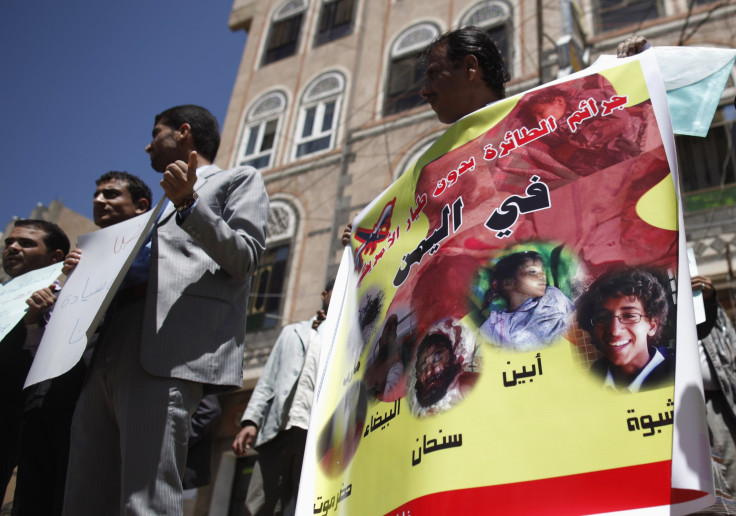Yemen’s Parliament Approves Non-Binding Ban On Drone Strikes

Yemen’s parliament approved a non-binding motion on Sunday to end drone attacks in the country, in a sign of mounting opposition to the use of unmanned aerial vehicles against militants by the U.S. in the Middle East.
The U.S. says its drone program in Yemen has been able to contain al Qaeda in the Arabian Peninsula, or AQAP, which Washington considers the most active wing of the terrorist organization worldwide. Sunday’s proposal, which follows reports of a deadly drone strike earlier in the week on a wedding party, is seen as a recommendation to Yemen's president who holds veto power.
Lawmakers voted to “prevent drones in the skies of Yemen, stressing the importance of protecting innocent citizens as well as the preservation of the rule of Yemeni territory,” Yemen’s official Saba news agency said.
On Thursday, a drone attack in Rada in the central province of Bayda, where AQAP is active, killed 17 people in a wedding motorcade, sparking protests. However, the Supreme Security Committee, headed by President Abdrabuh Mansur Hadi, said on Friday that the strike targeted a car belonging to an al Qaeda figure.
In the car “were top leaders who plotted several terrorist attacks against the armed forces, police, civilians and vital government installations,” the statement said, according to a report by Agence France-Presse.
Relatives of those killed in Thursday’s strike, which included several civilians apart from two al Qaeda suspects, demanded an official apology and compensation from the government, before reaching an agreement on compensation with local authorities.
“If the government fails to stop American planes from... bombing the people of Yemen, then it has no rule over us,” tribal chief Ahmad al-Salmani told AFP.
A section of the Yemeni public and the country's politicians agree that without drone attacks, AQAP would have widened its network in Yemen. However, critics among Yemeni nationals argue that civilian casualties from drone strikes stir anti-American sentiments and sympathetic attitudes toward the militants.
© Copyright IBTimes 2025. All rights reserved.






















